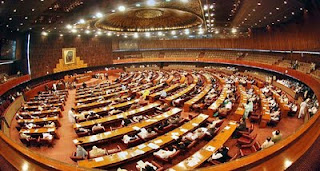Enter the domain of conspiracy theorists and you are bound to come across the most ludicrous of conjectures.
The discrepancies surrounding the PSN Mehran attack has fuelled the wildest of imaginations and the US-based contractor Blackwater , India ’s RAW and Israel
There are also claims that nobody sneaked into the naval base and attackers were in fact its employees already present there.
But the craziest one that has been churned up so far is that the attackers were members of the People’s Amn Committee – a Pakistan People’s Party-affiliated organisation based in the Lyari area of Karachi
A mystery that leads to a number of possibilities and explanations is always intriguing, but some tend to go overboard, eventually obscuring their perception of reality to the point of ludicrousness.
In one such example, some have also come up with the assumption that al Qaeda chief Osama bin Laden’s body has been thrown into the Bermuda Triangle as a gift to Masih ad-Dajjal, who, Muslims believe, would be the last of the false prophets and the greatest evil on earth before the Judgement Day – a figure comparable to the anti-Christ in Christian beliefs.
What was the person, who came up with this preposterous theory, had been smoking? Obviously, he/she has a deep resentment for the Americans as they are being perceived as aides of Dajjal. So it’s easy to guess as to where all this is coming from. In fact, one Maulana Umer Asim has even authored two books - Bermuda Tikon aur Dajjal (Bermuda Triangle and Dajjal) and Dajjal ka Lashkar - Blackwater (The Army of Dajjal - Blackwater) – in a bid to explain how the end-time scenario is shaping up.
Apart from brewing up conspiracy theories, some mullahs also propagate their agenda by spreading false tales about how people who desecrated the Quran or committed some other major sin were turned into grotesque creatures by God as punishment for their wrongdoing. For this, they use booklets and pamphlets and are also assisted by the profit-seeking owners of a few third-rated Urdu newspaper.
A few years ago, a newspaper carried a picture of a half woman-half animal along with a story, claiming that the creature was a woman punished for tossing the Quran into fire.
However, the deception was exposed the next day when it turned out that the monstrosity in the picture was actually a sculpture created by a famous artist.
Not too many of such lies circulate now… perhaps the presence of so many TV channels has made it hard to pull off such tricks (plus some TV channels have their own agendas to propagate). As for conspiracy theories, there are bound to be more bizarre ones in the coming days.
















